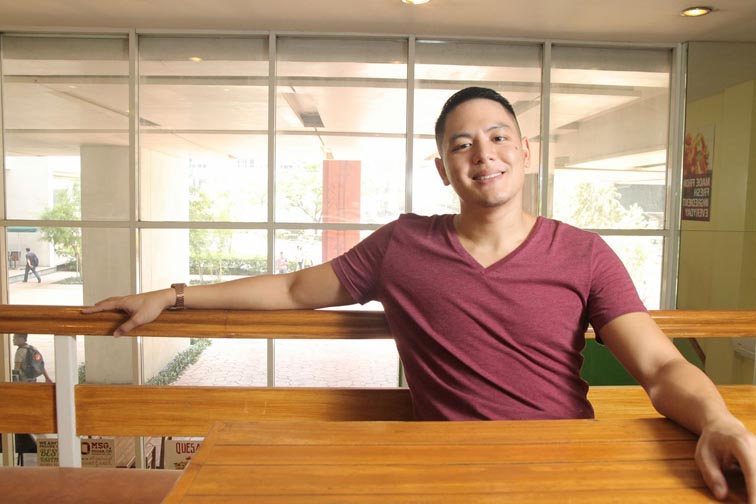For Earl Samuel Ty Chua the land of opportunity is not the United States where he was born, but rather the Philippines from which his parents migrated.
Through his fledgling fast food restaurant FaBurrito, he hopes to leave his mark in the world of business.
Born in San Francisco in August 1983, Chua is the fourth of five children. Life was not easy for him and his siblings. His parents toiled to make ends meet. His mother Elizabeth worked as a counter girl at the deli section of a grocery store to help support her family.
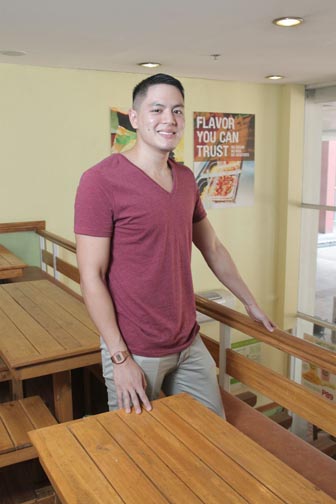
In these humble circumstances, Chua learned the dignity of honest work to earn an honest buck. At 11, he worked cleaning up parks and picking up trash. Then he worked at various other odd jobs, including a stint at the library and a law office.
At 16, he worked as a bag boy in a grocery store while he finished high school. After two years there, his employers offered to promote him to a checker’s post.
Chua quit.
He felt that he had more potential and did not want to become a “lifer” working in the grocery store for the rest of his life.
So he worked as an after-school teacher for about a year.
Then, he enrolled in a vocational school to study about cars. After finishing his course, he and older brother Errol raised capital to purchase a car emission test shop.
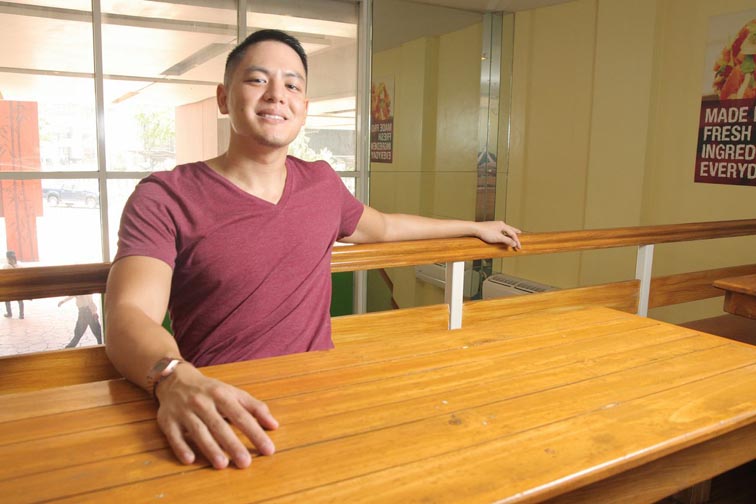
They lacked experience running a business. But they had plenty of dedication and passion which, combined with hard work, enabled them to pay back lenders – friends and acquaintances – after six months.
As a child, Chua visited family in the Philippines every four years. But it was not until a trip to attend his grandfather’s funeral in 2007 when it dawned on him that his parents’ homeland had business potential.
He, Errol and another older brother Erik opened a business process outsourcing company in Manila. It did well enough that the brothers began spending more time in the Philippines.
Eventually, they closed down the car emission shop in the US and moved here permanently.
Transition to life in Manila was not easy. Raised in a church-going family as a child, Chua admitted straying from his faith when he moved here. Partly out of a desire to make up for his wrong choices in life, he decided to open a business where his faith would be the guiding principle.
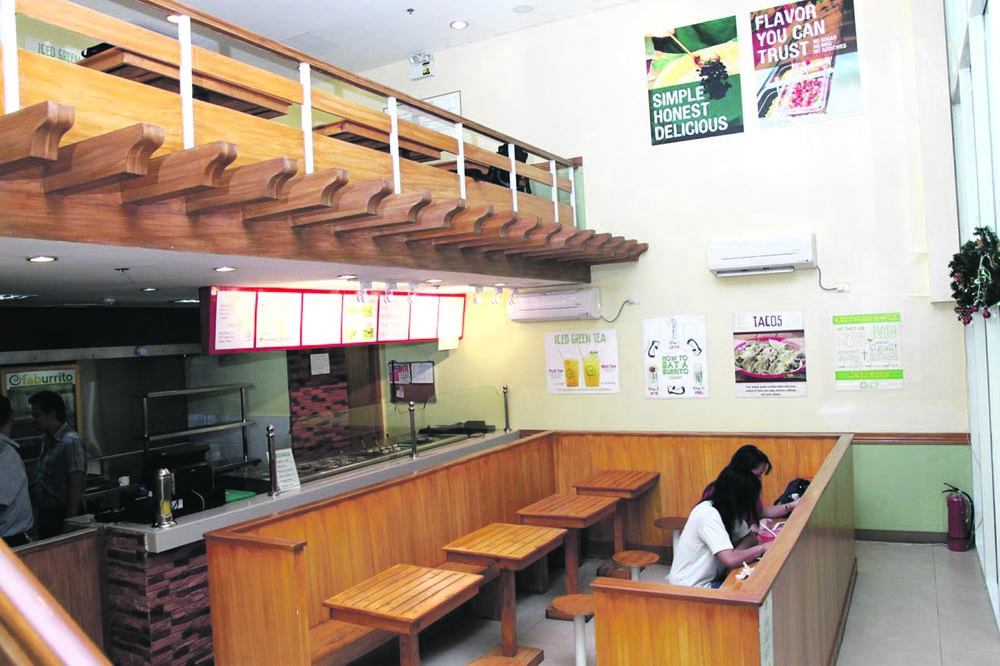
Wanting to eat healthy as well, he set up FaBurrito in Makati, an eatery offering healthy Mexican cuisine that features fresh ingredients and no monosodium glutamate.
He does not serve soft drinks or alcoholic beverage, but instead offers fruit shakes and low-sugar iced teas.
“I was losing weight and eating healthy in the States. But every time [I came back to the Philippines] I was frustrated that I could not find healthy places to eat in,” he says.
The company would also be run on Christian values.
For one, he would be fair to employees: rather than hiring workers on six-month contracts, they would all be regulars. Of course, Chua is aware that many laugh at his idealism, but stands by his decision.
“I wanted to create a business that will make a lasting difference in the country. Money is not necessarily my main motivation. It is more the sense of achievement, something that I can be proud about,” he says. Something that lets him say “Hey I contributed. I helped change people’s lives.”
Another reason for his lofty ideals came after he volunteered in outreach events to places such as Smokey Mountain. Even if his own upbringing was not that privileged, seeing poverty of that scale shocked him.
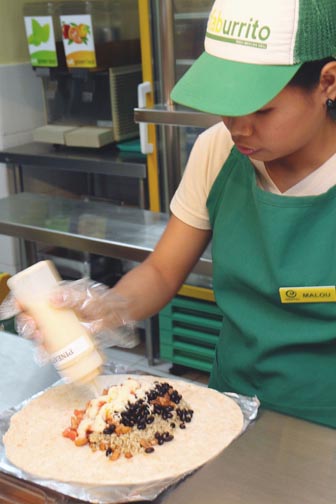
It made him decide to do something to help the less fortunate.
“For me to not do anything about it is what got to me,” he says.
Again with his brothers as investors, Chua opened FaBurrito, even though he knew only how to prepare Mexican cuisine, not how to run a restaurant.
Since he had already decided not to hire a chef or consultant, he had to learn on the job. If he ran into a problem or question, he would either consult his employees or research the matter on the Internet.
As well, Chua had to cope with differences in business culture and environment between the U.S. and the Philippines.
Despite these difficulties, he opened his first FaBurrito store at The Columns along Gil Puyat St. in 2011. In those early days, Chua was more involved with the call center business until FaBurrito’s daily sales fell far below expectation.
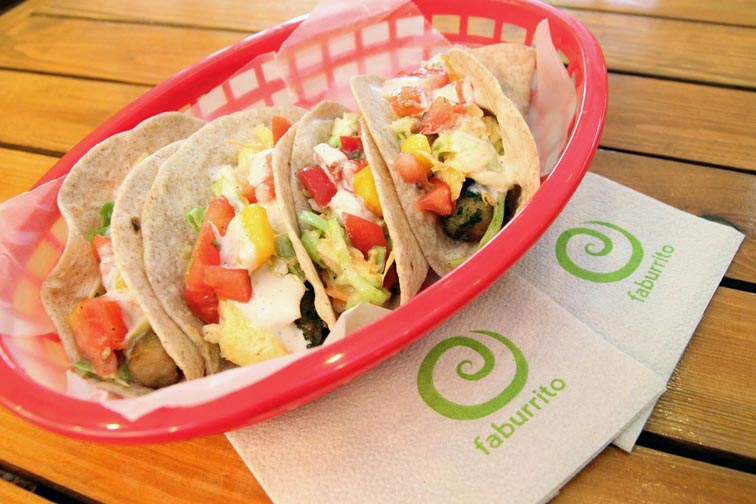
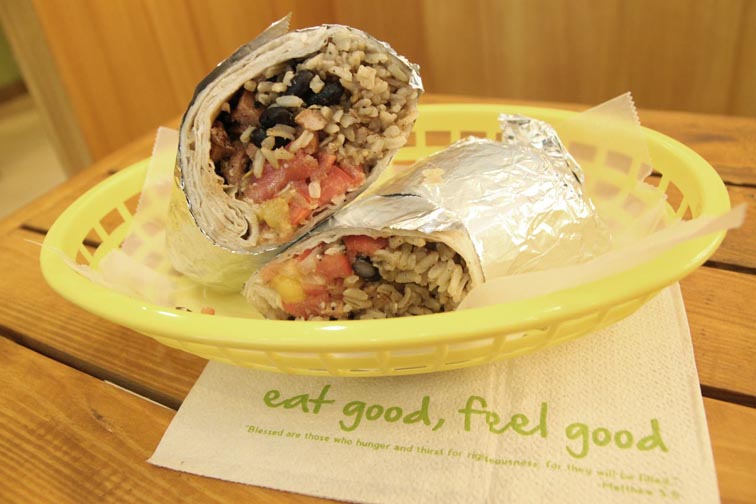
Then he devoted much of his energy fine-tuning FaBurrito’s operations. Not a micromanager, he gives his crew credit for FaBurrito’s performance.
One of them, Christopher Aldriano, has been with the company for over a year as an ‘appetite advisor,’ or front line service crew in FaBurrito parlance.
Aldriano noted that FaBurrito’s open lines of communication allow employees to feel free to share opinions about work-related issues.
“If there is any problem, our boss would take note of (it), then work out a solution,” he said.
Aldriano said the open atmosphere is different from his previous workplaces – 10 of them – and has nothing to do with FaBurrito’s small size. Rather, it is a reflection of the employer’s attitude.
“How the employers or how the manager handles the crew will show up in the attitude of the employees at work,” he says.
FaBurrito eventually found favor with workers from offices nearby, and expatriates who live upstairs.
Indeed, FaBurrito’s menu has earned kudos from Anton Diaz, founder of website OurAwesomePlanet.
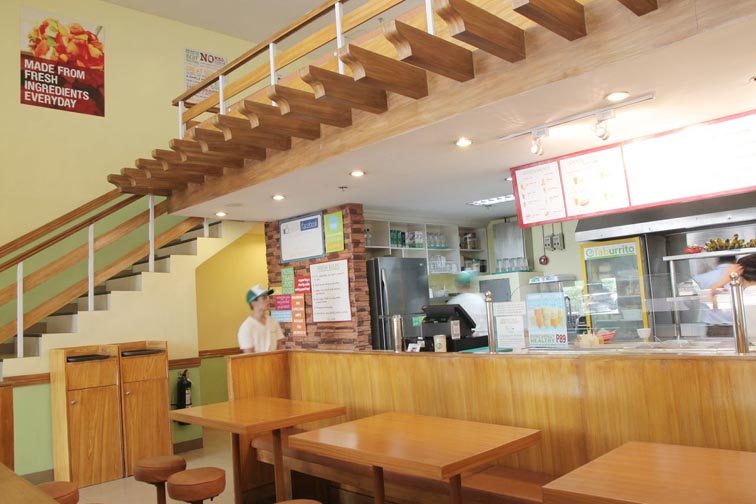
“Hopefully, more healthy restos like FaBurrito would set up shop in Manila soon,” Diaz comments.
Diaz’s meal there included grilled chicken marinated in mango and chili, U.S. tenderloin beef in Cajun spices, whole wheat tortillas, brown rice, black beans, mango salsa, pineapple coulis, cucumber yogurt, and balsamic vinaigrette.
Despite this initial success, Chua realizes this is an industry where failure rate is particularly high.
“Looking back at it, I didn’t know what I was thinking. It is a really tough business. I didn’t know how much hard work it was. But it is a miracle that we are still alive right now,” Chua says.
Against the odds, FaBurrito has grown: it now has a branch in Eastwood City, Quezon City.
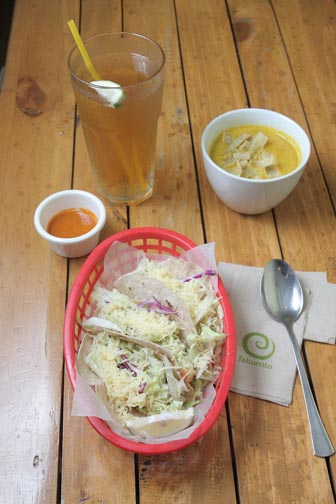
Chua has big dreams. Among his corporate goals is the future FabFoundation, a boarding school for underprivileged and homeless children. Aside from feeding, clothing and educating them, they will also learn the Christian faith and life survival skills.
“The school is a long-term goal; it sounds very ambitious and requires a lot of capital,” Chua admits. “(But) we need to start somewhere. Right now we are doing smaller events such as feeding programs. We can’t open that school until we have four or five branches.”
Growth. For FaBurrito, for its vision, for Chua.
Clearly he pursues the same path as other Tsinoy entrepreneurs who preceded him. He has language skills and other advantages. How far he goes is a matter of vision, focus and tenacity. — First published in Tulay Fortnightly, Chinese-Filipino Digest 26, no. 4 (July 23-Aug. 5, 2013): 15.-16
